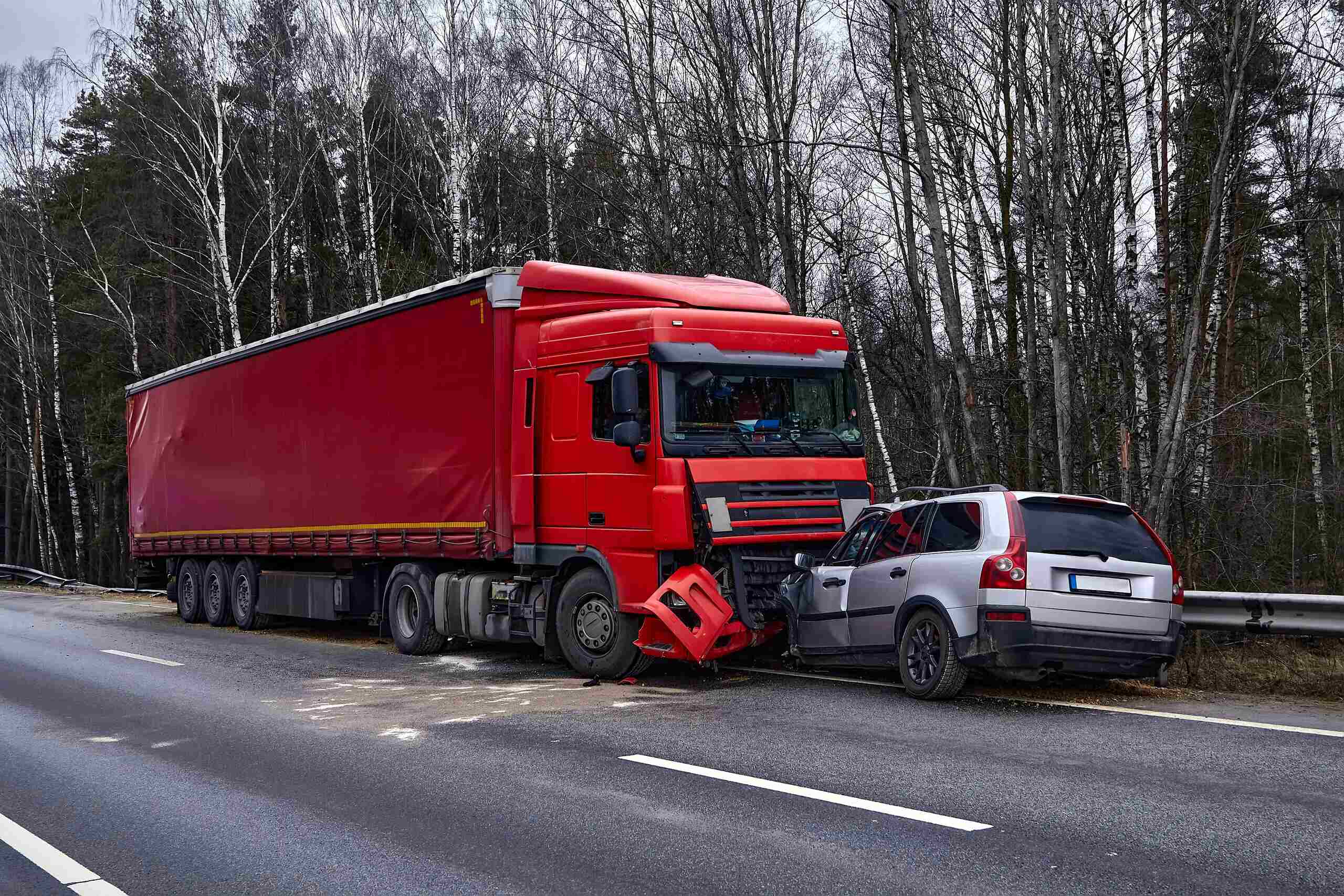Liability in a Car Accident Involving a Rental Truck
Renting a moving truck from companies like U-Haul, Penske, or Budget is common for DIY movers. But when an accident happens involving a rental truck, the question of liability becomes complicated. Who pays for the damage? Does your personal car insurance cover the truck? What if the other driver is at fault?
This comprehensive guide explores how liability is determined in rental truck accidents, what insurance options are available, and what legal responsibilities drivers should understand before getting behind the wheel of a moving truck.
Common Scenarios Involving Rental Truck Accidents
Rental truck accidents can occur in various situations, each with its own legal and insurance implications. Understanding the most common scenarios helps clarify who might be held responsible.
1. Crashing a U-Haul While Moving
If you’re driving a U-Haul truck and you cause an accident, you’re typically responsible for damages. Most people assume their personal auto insurance extends to rental trucks, but that’s often not the case—especially with larger vehicles over a certain weight.
U-Haul offers optional insurance plans like SafeMove®, which cover damage to the truck and offer limited liability protection. However, if you declined coverage and your auto policy doesn’t cover truck rentals, you could be facing significant out-of-pocket expenses for property damage and medical bills.
2. Getting Hit by a Penske or Budget Truck
If you’re hit by someone driving a Penske or Budget rental truck, you might expect to file a claim with the driver’s insurance. But complications can arise. If the driver failed to purchase sufficient liability coverage through the rental company, and their personal insurance doesn’t cover large trucks, your options for compensation could be limited.
In some cases, you may need to pursue a claim directly against the rental company—particularly if the accident was caused by mechanical failure, like faulty brakes or worn tires.
3. Rear-Ended by a Rental Truck—Now What?
Being rear-ended by a rental truck introduces a new level of complexity. Even if the accident appears straightforward, you still need to prove fault and determine who holds the insurance coverage—whether it’s the driver’s policy, the rental company’s coverage, or both. It’s not uncommon for victims in these situations to face delays or denials in getting compensated, especially if liability coverage was waived.
How Liability Works in a Rental Truck Accident
Liability refers to legal responsibility for damages or injuries caused in an accident. In a rental truck accident, multiple parties may be involved, and determining liability depends on who was driving, what coverage they had, and whether negligence played a role.
Determining Who Is at Fault
The most common factor in rental truck accidents is driver error. If you’re operating a rental truck and collide with another vehicle, hit a pedestrian, or damage property, you are likely to be held responsible unless you can prove otherwise. Fault determination typically relies on police reports, witness statements, and in some cases, traffic camera footage.
It’s essential to know that rental agreements often place full liability on the person who signed the contract, even if someone else was driving. This means that if you lend the truck to a friend or family member and they cause an accident, you could be the one held legally responsible.
When the Rental Company May Share Responsibility
While rental companies are generally protected from liability due to federal laws like the Graves Amendment, they can still be held accountable in cases of gross negligence. For example, if a truck’s brakes fail because the company failed to perform routine maintenance, the company could be partially liable for the accident.
However, proving negligence on the part of a rental company requires substantial evidence, such as maintenance logs and expert testimony. Most accidents will not meet this threshold, leaving the driver or renter responsible.
Insurance Coverage Breakdown: What You Need to Know
Insurance is often the deciding factor in how financial liability is handled after a rental truck accident. Unfortunately, many people discover after the fact that they weren’t adequately covered.
Personal Auto Insurance Limitations
Standard car insurance policies often do not cover rental trucks—especially larger trucks used for moving purposes. Many policies specifically exclude vehicles above a certain weight or vehicles used for commercial purposes.
Before renting a truck, it’s critical to check with your insurance provider to confirm whether your policy extends coverage to the type of truck you plan to use.
Rental Company Insurance Options
Most rental companies offer multiple forms of optional insurance. These may include:
- Collision Damage Waiver (CDW): Covers damage to the rental truck, but not liability for third-party damage.
- Supplemental Liability Insurance (SLI): Extends third-party liability protection, often up to $1 million.
Cargo Insurance: Covers loss or damage to the items being transported. - Personal Accident Insurance (PAI): Provides medical coverage for the driver and passengers.
Declining these coverage options could leave you personally responsible for both your vehicle and any other damages caused in the accident.
Understanding Coverage Gaps
Coverage gaps are common. For example, if you damage another car but didn’t purchase SLI and your personal auto policy doesn’t apply, the cost of repairs, medical bills, and even lawsuits may fall directly on you. These gaps highlight why it’s crucial to understand your coverage before signing the rental contract.
Company-Specific Policies: U-Haul, Penske, and Budget
Each major rental truck provider offers different insurance options and liability structures.
U-Haul
U-Haul offers SafeMove® and SafeMove Plus® packages. These include collision damage waivers, cargo coverage, and liability protection. However, these are not included by default—you must choose them during checkout.
Penske
Penske’s insurance options are often more comprehensive than U-Haul’s, including liability, cargo, and roadside assistance. Still, you must verify whether the protection extends to every driver and situation, as exclusions can apply.
Budget
Budget Truck Rental provides options like Supplemental Liability Insurance and Personal Accident Insurance. However, their liability waivers generally cover damage to the rental truck only and do not extend to third-party claims unless you pay for additional coverage.
State-Specific Laws and Liability Waivers
Your location can significantly affect how liability is determined in a rental truck accident.
Comparative Fault vs. No-Fault States
Some states follow comparative negligence rules, which means liability is split among the parties based on their share of fault. Other states are no-fault, which requires each driver’s insurance to pay for their own damages up to a certain limit, regardless of who caused the crash.
If you’re renting and driving a truck across state lines, make sure you understand how these laws change and how they affect your liability.
Understanding Liability Waivers
Rental contracts often contain waivers that release the company from responsibility in many situations. These waivers may become void if:
- The vehicle is used for unauthorized purposes
- The driver is not listed on the rental agreement
- The accident involves DUI or reckless driving
Reading the contract thoroughly before driving off the lot is essential to avoid unintended consequences.
Steps to Take After a Rental Truck Accident
Knowing what to do after an accident involving a rental truck can protect your rights and help you handle insurance claims efficiently.
- Ensure safety first. Call 911 to report the accident and seek medical attention if needed.
- Document the scene. Take photos of all vehicles, license plates, and injuries. Write down witness contact information.
- Exchange information. Get the other driver’s name, insurance, and contact details. Also record the rental truck’s plate and your rental agreement number.
- Notify the rental company. They will have procedures for reporting accidents and beginning the claims process.
- Contact all relevant insurers. This may include your own insurance, the rental company’s insurer, and any third-party insurers.
Before You Rent: A Checklist
- Confirm whether your personal car insurance covers rental trucks.
- Review and understand all rental contract terms.
- Decide if you need SLI or CDW—often, you do.
- Ensure all drivers are listed on the rental agreement.
- Know the legal driving requirements in any state you’ll be traveling through.
Common Problems with Rental Truck Accidents
- Discovering your personal auto policy excludes large trucks after an accident.
- Being sued for damages when you didn’t purchase supplemental insurance.
- Rental company denying coverage due to a breach in the rental agreement.
- Facing liability for third-party injuries because only truck damage was covered.
- Conflicts over fault in states with differing negligence laws.
Frequently Asked Questions
Am I liable if someone hits my rental truck?
If another driver causes an accident involving your rental truck, they are generally considered liable. However, recovering damages may depend on whether the other driver has valid insurance. If they are uninsured or underinsured, your recovery options may be limited unless you purchased supplemental insurance or have coverage under your personal policy. Always report the incident and document all evidence to support your claim.
Can I be sued for a crash in a rental truck?
Yes, you can be sued if you are found at fault in a crash while driving a rental truck. Even if you believe the accident was minor or unintentional, the other party may file a lawsuit for vehicle damage, medical expenses, lost wages, or pain and suffering. If you declined liability coverage from the rental company and your personal insurance does not cover large rental trucks, you could be personally responsible for significant financial costs.
Does my personal auto insurance cover rental trucks?
Not necessarily. Many personal auto insurance policies exclude coverage for rental trucks, especially those classified as commercial or above a certain weight threshold. You should check with your insurer before renting a moving truck. If your policy excludes rental trucks, consider purchasing coverage directly from the rental company to avoid gaps.
What if someone else drives the rental truck and crashes it?
If someone other than the person listed on the rental agreement crashes the truck, the rental company’s insurance coverage—if any was purchased—may be void. You, as the renter, could be held liable for all damages, even if you weren’t the one driving. It is essential that anyone operating the vehicle be officially listed on the rental contract to ensure valid coverage and avoid breach of terms.
Who pays if I crash a Penske or Budget truck and didn’t purchase insurance?
If you decline the rental company’s insurance and your personal auto policy does not cover the incident, you may be fully responsible for all damages, including repairs to the truck, damage to other vehicles, and medical expenses. In these cases, the rental company can pursue you directly for damages, and you could also be liable to third parties through legal action.
Contact Lawlor, White & Murphey Today
A rental truck accident can result in unexpected legal and financial burdens. Whether you’re renting from U-Haul, Penske, or Budget, it’s crucial to understand how liability works and what your insurance covers. Always read the rental contract in full, assess your existing insurance, and consider purchasing supplemental coverage.
If you’ve been involved in a rental truck accident and are facing legal or insurance challenges, don’t wait—contact Lawlor, White & Murphey immediately.
Getting professional legal help can ensure your rights are protected and that you receive the compensation you’re entitled to.

